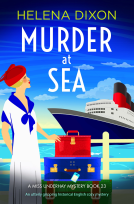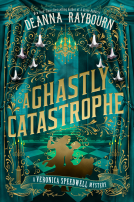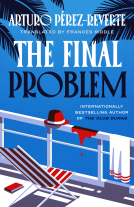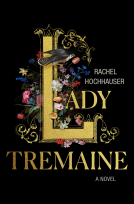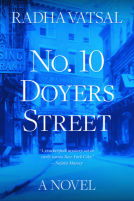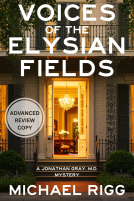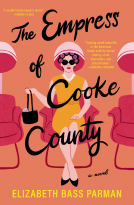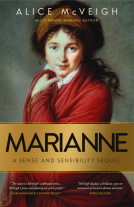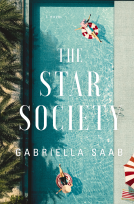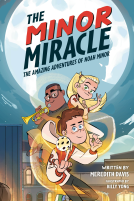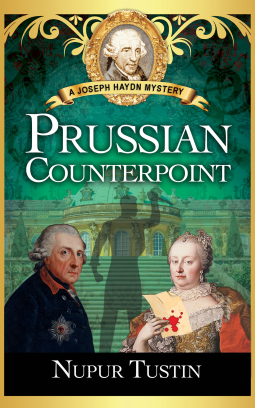
Prussian Counterpoint
A Joseph Haydn Mystery
by Nupur Tustin
This title was previously available on NetGalley and is now archived.
Send NetGalley books directly to your Kindle or Kindle app
1
To read on a Kindle or Kindle app, please add kindle@netgalley.com as an approved email address to receive files in your Amazon account. Click here for step-by-step instructions.
2
Also find your Kindle email address within your Amazon account, and enter it here.
Pub Date Mar 01 2019 | Archive Date Mar 04 2019
Talking about this book? Use #PrussianCounterpoint #NetGalley. More hashtag tips!
Description
When an enemy makes overtures of friendship, is anyone safe?
An unexpected invitation from wily King Frederick causes composer Joseph Haydn to fear he’s walking into a trap. After all, the Prussian King has never had any use for Haydn’s music. His Majesty seems more intrigued at Haydn’s being the son of a market-judge.
Worse still, the invitation appears to stir up suspicion in the highest quarters in Vienna. So much so that a mysterious, cloaked lady visits Haydn’s Music Room and issues a thinly veiled threat.
Now Haydn is convinced there’s mischief afoot. But not even he can foresee that he will stumble upon the corpse of the imperial ambassador a day after his arrival in Frederick’s Prussia, along with evidence that His Lordship may have been a common thief.
Can Haydn salvage the imperial ambassador’s reputation—and find his killer?
Praise for the Joseph Haydn Series
“Wonderful read for fans of historical cozy mysteries. . .The characters are strong and the writing is
smooth. . ."
Books a Plenty Book Reviews
“A standout in the genre of historical mysteries. An encore is requested!“
Midwest Book Review
“Tustin occupies a unique niche in the historical mystery world.”
Edith Maxwell, Agatha-nominated author of Delivering the Truth
Available Editions
| EDITION | Ebook |
| ISBN | 9780998243054 |
| PRICE | $11.99 (USD) |
Average rating from 8 members
Featured Reviews
 Carol K, Reviewer
Carol K, Reviewer
I love Nupur Tustin's love of Prussia, a place near and dear to my heart though my ancestors who came from there are separated by many generations from their home town on the Baltic Sea. Prussia, or Pomerania, or Poland: talk about an indentity crisis! It's amazing to realize that not even 200 years ago, Germany, Austria, and Poland were not the nations they are now. They were empires, and Napoleon wreaked havoc on their borders, as did the world wars. We see Regency Romances all the time, but stories set in Prussia seem to lack the staying power that Jane Austen gave England of the early 1800s.
Tustin's love of Prussia comes through in her prose without being heavy handed. We see Her Majesty, Empress Maria Theresa, seated by a mural that still exists today and can be seen in person, or on Tustin's blog: "The lush bounty of leaves, melons, and pomegranates painted on the walls by Johann Wenzel Bergl's hands formed a startling contrast to the bleakness without." This is the beauty of historical fiction. If you can't summon airfare to Vienna, you can see images of the imperial summer palace, Schönbrunn, at the author's blog.
The Esterházy Palace on Wallnerstrasse is another place I'd gladly visit soon, but for now, I enjoy reading someone else's impressions of these grand places.
There is much talk of unrest in Poland, and enemies of Her Majesty fomenting trouble, making a trip to Prussia imminent for the Empress and some of her servant girls as well, who get into a lively subplot of their own. Empress Maria has three daughters to choose from to escort her on her journey, and she chooses the least favored one, Amalia, who "had nothing to recommend her." Not her sister Mimi's beauty, not her younger sister Antoine's charms. Amalia was "hardheaded and uncompromising."
As in an Austen novel, there is also talk of marriage, but romance is not the main focus. Music recurs like a motif in the narrative as Kappellmeister Haydn is drawn into a mystery. At this point, I have to confess, I find it distracting to have a real-life composer cast in the role of a Sherlock Holmes in the days of the Prussian Empire. If it didn't really happen, why not create a character similar to Haydn instead? It's a minor detail however, one that apparently doesn't bother devout fans of historical fiction. Likewise, I found myself skimming pages about the ostentatious seven-carat gemstone that goes missing, and the murder, and the unraveling of clues to determine whodunnit.
But I love the part that really did happen, such as the royal visitors being greeted at the palace gates by "a small, wizened creature in a faded blue military uniform," who conveys the visitors to Sanssuci himself--and he is none other than the King Frederick of Prussia.
The Point of View shifts frequently from Empress Maria to Haydn to other minor characters, which to me is a little jarring. I found the narrative a bit off-putting because of it. But I love the Author's Notes at the end, with the unfortunate reminder, "Poland, unfortunately, was never saved. On August 5, 1772--less than four years after the events of this story--Empress Maria Theresa reluctantly agreed to the first partition of Poland." Polish territories were swallowed by Russia, Prussia, and Austria.
I also love her reminder of "how closely the Polish constitution with its system of checks resembled the system of governance in the United States of America," and that Poles shared an antipathy toward government in all its forms. "The Poles quite rightly believed that subjecting a minority of people to the whims of the majority went against the principle of individual liberty," Tustin writes.
In all, this is a rich novel with lively dialogue and political intrigue, along with a murder mystery for the composer Haydn to solve. The whodunnit is not my favorite genre to begin with, so pay no attention to me if I say that was not the best part of the novel. The history alone is worth the price of admission!
Readers who liked this book also liked:
Helena Dixon
Historical Fiction, Mystery & Thrillers
Marie Bostwick
Historical Fiction, Literary Fiction, Women's Fiction
